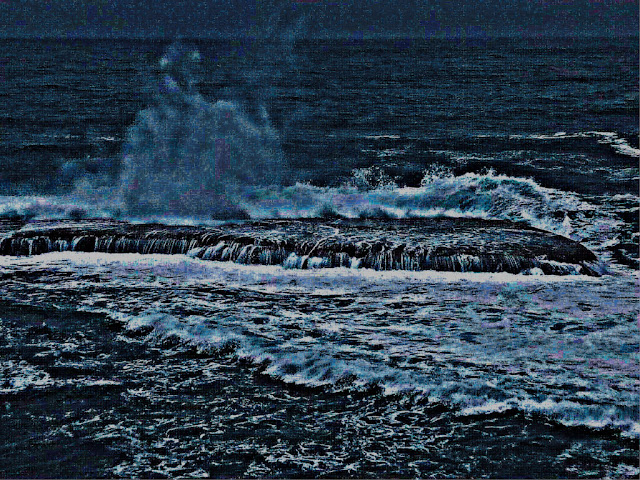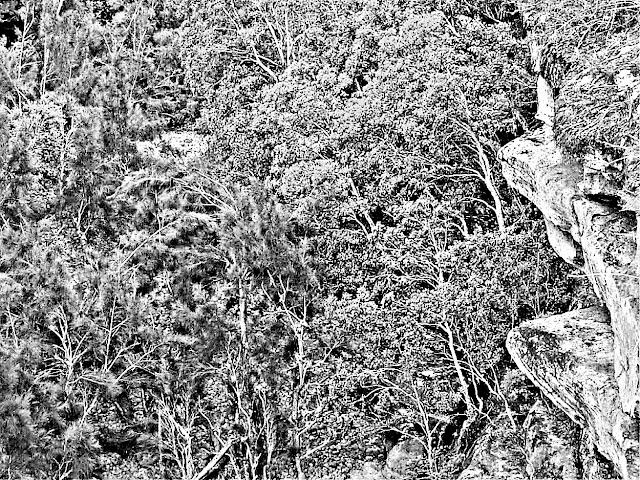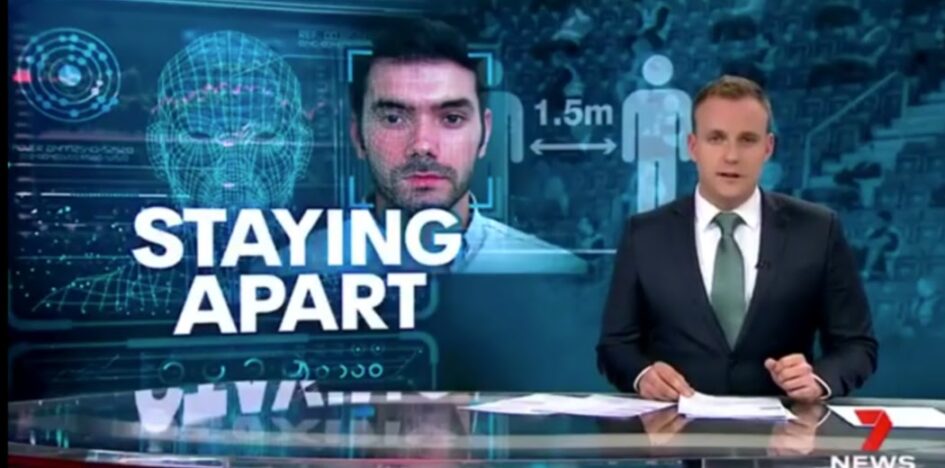Old Alex was alive to the whole End of Days narrative for multiple reasons, including his own childhood. Having grown up in a Christian cult, members of his family were preparing for the end of the world way back in 1972.
Water bottles in the cupboard. Packed to flee.
Fascinating what happens to people when these end of the world narratives don’t come to pass. They reform. Their faith remains unsundered. Reality has nothing to do with it.
There was always a tugging from afar. There was always a religious zealot who should have known better. There were always liars in high places. The common people were always seen as insignificant.
The “formation”, as nuns sometimes call that linkage to a different realm, was in flux. The entire unfolding story would become progressively more fantastical. But first the prosaic.
Day three, On Medium. Charged to the max. Spurned. Different. Alone. And pounding away at that damn computer in the early hours, night after night. They encroached from the very edges of time. They knew this was rigged. They were used to dealing with ignorance, but this?
The wildly inaccurate nature of initial modelling might have proffered some excuse for the Australian government’s catastrophic mishandling of the Covid crisis.
But within weeks of it all beginning epidemiologists from some of the world’s leading institutions were speaking out, warning that lockdowns were not the way to go.

The geniuses in the Australian government ignored all the cautionary tales, all the world experts warning them that lockdowns don’t work, that they do more harm than good. Including in Australia the eminent Professor Ramesh Thakur from the Australian National University.
We would all be paying a very high price for this for decades to come. As would our children. And our children’s children.
Old Alex headlined the next story with a head shaking old expression from his troubled, Christian, doomladen childhood: “How to Destroy A Nation.”
Uttered at every mounting government insanity; the phrase referenced the sclerotic nature of Australian bureaucracy, the absurdity of the “rule based order” and the indifference to the fate of those the strangling web of regulation trapped and ultimately destroyed.
As if the very gods themselves had come to destroy this place. Or to destroy the masquerade Australian democracy had become.
Inflamed. In the early hours. Enthralled by a developing history and a destiny he could not deny. Fatalism, fatalistic. What joy there was, what exultant, wonderful human joy could be got just by walking out the door, none of it figured in those fevered hours when he was living up to his “Johnny raincloud” gloom laden best.
He was already in a hyper state; either walking on eggshells or distressed by the surveillance and whispering he could hear all around him, the voices of the sphere and the spooks. He spoke out in a world of silent, acquiescent statues; that this time, this moment, was full of threat. “Beleaguered” would do it.
As the year began he had written one of those “in their face” stories he was partial to, expressing his extreme discontent with the course of events, most particularly the inclusion of journalists under security legislation as “Persons of Interest”, which meant none of the targeting and harassment he felt so intensely could be deemed illegal.
When the target already knows they’re being watched, the only point to it is intimidation, or the enforcement of cooperation. Some were just doing their jobs. Some were malevolent. Some he liked. Some he most certainly did not.

This is what happens when you leave a gap in the imagination, a gap in the story. All vacuums must be filled. If you can’t see them, you put faces to names you can only hear in the wind.
Australia’s conservative parties had been involved in intense media manipulation since they had regained power in 2013; from blocking popular Facebook sites to harassing little-read authors.
“Imagine you’re writing something critical of the government. You know there are cameras in your home, a keylogger on your computer — every keystroke is observed or recorded. And then you hear cries of derision from a neighbouring house.”
That had been his experience while completing the previous book, even before the present one began.
“My lifetime in journalism never prepared me for so much abusive surveillance,” he had written. “Among the most egregious laws passed by the Abbott and Turnbull governments were Journalist Information Warrants, issued entirely in secret. Journalists are not informed if a warrant is taken out against them and face jail if they publicise the fact.
“The laws have become so strict that journalists cannot write about security operations, or even surveillance of their reporting, without the risk of prison”
In this inflamed, indeed insane environment, the Australian government began arresting journalists and searching their homes and offices, with two high profile cases transfixing the profession if not the public.
“Suppress dissent and you foment revolution.
“Thanks to the blizzard of poorly drafted legislation that the Liberals introduced to exploit the fear of terror, we now live in a country where, as the Inspector-General of Intelligence and Security recently pointed out, you can be jailed for five years for breaching orders you didn’t know existed; where children as young as ten can be incarcerated without charge.
“It doesn’t take the gift of prophecy to know that future historians will see the Abbott/Turnbull/Morrison era as the worst period of governance in Australia’s history, when totalitarian instincts were unleashed. The targeting of journalists is just the beginning of a much greater disaster.”
Well, already, with the government desperate to have a cohesive Covid narrative and a compliant population, we were all walking straight into the disaster.

And he felt he was on the wringer, being squeezed. He was frightened. He was alone. He was way out on a limb. He wasn’t contained within some self-referencing and supportive milieu; he no longer worked for a multibillion news corporation with a phalanx of lawyers to back him if anything went wrong.
When it came to the “music of the spheres”, he still didn’t understand the urgent messaging piercing through. He didn’t understand why at these times in history his head began to swarm across places and suburbs, that if not possessed he at the very least felt entangled with very different intelligences, from very far away. And that nothing could be contained, as he faced a power far greater than any of us
Dealing with a dying parent and barely knowing anyone in the area outside his local watering hole, he was running counter to almost everyone he knew, or encountered; supportive, as they were, of a government that was allegedly saving them from “the virus”.
Suggesting that experts from Stanford, Harvard, Princeton and Oxford were all coming out on his side of the argument – that lockdowns were a dangerous social experiment and a direct step into totalitarianism – was met with blank stares or derision; they had no idea what he was talking about.
And so he drank bourbon alone out of the boot of his car and gazed across an empty shore.
And felt seized, once again, by destiny; a destiny he had now power to stop.
He began his piece third piece in the barrage, “How To Destroy A Nation: The Failure of Australian Governance”, just as he intended to go on:
“All politics is local. An adage Australia’s inept government forgot long ago. It is what is happening in people’s lounge rooms that matters the most.
“Now almost everyone is hunkered down in their own lounge rooms, told not to go outside unless absolutely necessary.
“It’s 2020, and Australians have endured extremely poor governance at federal, state and local levels for decades, and must live with the consequences. A dishonest government is a paranoid government, and intrusive surveillance of everyone from nationalist groups to the Muslim minority fires indignation at home and abroad.
“The wave, that shockwave that is coming, is already being mirrored in a thousand little ways, the jackboots that stepped across every tiny freedom, restricted every conversation, destroyed every impulse for freedom.
“Humans are herd animals, now more than ever.
“Remarkable how quickly they accept the abrogation of their own freedoms.
“As hard to believe as it may be, even as they see images of Great Depression style queues forming outside Centrelink, Australia’s welfare offices, some people believe the Prime Minister Scott Morrison is doing a good job.”
This is an extract from the upcoming book Unfolding Catastrophe by John Stapleton.
A collection of his journalism is being constructed here.

